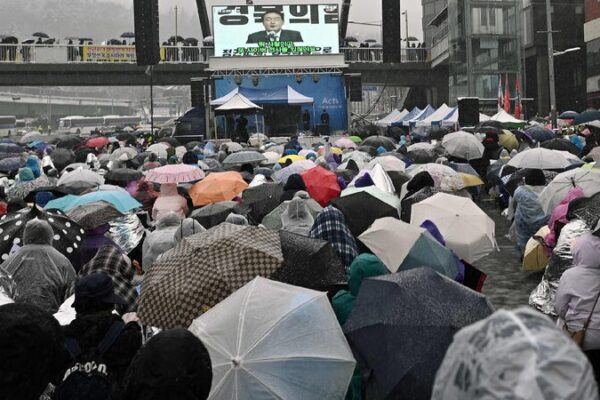South Korean investigators from the anti-corruption unit left the presidential residence empty-handed after failing to arrest President Yoon Suk-yeol on January 3. The Corruption Investigation Office for High-ranking Officials (CIO) cited ongoing confrontations that made it virtually impossible to execute the arrest warrant issued by a Seoul court on Tuesday.
This marks the first time in South Korean history that an arrest warrant has been issued against a sitting president. The unprecedented event has stirred strong reactions across the nation. On January 4, citizens took to the streets, expressing a mix of support and opposition to the attempted arrest.
In Daegu, where President Yoon began his career at the public prosecutor’s office in 1994, locals shared their perspectives. Na Je-hyun, a cultural planner, insisted that arresting Yoon was necessary, calling him the “leader of the rebellion.” In contrast, a retiree surnamed Park disagreed, stating that arresting the president was “nonsense” and emphasizing that such actions should not occur in South Korea, as the president has the authority to declare martial law.
The nation watches closely as tensions rise, with many awaiting the next moves from both the government and the opposition. The failed arrest has not only heightened political unrest but also ignited public discourse about the balance of power and legal processes in South Korea.
Reference(s):
cgtn.com








